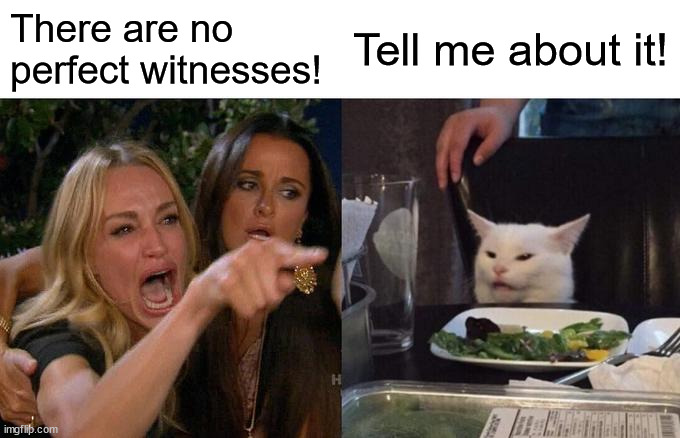I was recently watching Gavin Ortland’s “Are Catholics Christians? Why Protestants Can Say Yes.” Setting aside the point of his video, and even (mostly) his ministry and conclusions, there was something he said that really resonated with me.
…let’s conduct our disagreement going forward in a way that honors Christ where we contend for the truth, and we do so in love.
Gavin Ortland
Contend for the truth…in love. It seems so simple. Orland acknowledges that he falls short, as do we all.
I’m part of a number of groups and people that stretch, shall we say, me. Okay, I flat out disagree with much of the content they share and propound. Yet, I have found it to be critical to my growth as a person, Christian, father, husband, and pastor.
The language seen is “sinner”, “sin-lover”, “heretic”, “bigot”, “hater”, “hate-filled”, and most of this is from purported Christians to purported Christians. The presupposition of so many is that who ever the target of the person’s words are is coming from a morally or theologically wrong position. By wrong, I don’t mean in error or differing of opinion. By wrong, they put themselves in a place of condemnation and judgement of the other.
The Hard Part
By my words before, I could easily be accused of putting myself in the same place of condemning and judging others. I recognize that, but I’m also not sure what else I am supposed to do. Do I think any of these people will themselves be condemned to Hell (whatever iteration you presuppose)? Not because of their words, necessarily. It is still about their heart and their relationship with God.
While I am glad, on one hand, that the church universal (dare I say, the church catholic) is publically discussion theology and ethics, I think we have neglected to contend for the truth in love.
This is far more than LGBTQ+. There is MAGA and Trump, politics in general, Christians behaving badly (take that however you want).
In my denomination, there has been public trials in regard to LGBTQ+ (granted, being publicized by the person on trial kind of minimized the publicization). There are ongoing issues with misuse of Pentecostalic gifts while condemning non-problematic ones (in other words, throwing the baby out with the bathwater). There are issues about how we view the Scriptures.
My denomination long called itself a “big tent” denomination, but there are multiple camps trying to shrink the tent. My heart aches because too many are not contending for the truth in love, they condemn.
I am currently in a space where I wonder if our denomination can get to a point of discussion without declaration. We are in danger of abandoning,
Iron sharpens iron, and one person sharpens the wits of another.
Proverbs 27:17 NRSVue
Via Media
My denomination draws heavily from John Wesley. One of Wesley’s phrases was via media. In other words, the middle way.
Let’s set this in its proper context, and that is the Church of England. The Church of England had a philosophy of via media. It was walking the line between the Roman Catholic Church and many of the offshoots of Protestantism. As it became the official church of England, in many ways it ceased being the via media by the very nature of its societal and governmental (the CoE has ex officio seats in Parliament) position. It’s hard for many of my Church of the Nazarene friends to see that the Church of England used to be the via media. Granted, in many respects, the transformation of the Protestant Christian landscape, it seems kind of odd that the Church of the Nazarene is in any way a via media denomination.
Yet, if we really want to hold onto via media as core to our identity as a denomination, then we need to relearn contending for the truth in love.
Loving Contention
How do we contend for the truth in love? First, remember Proverbs 27:17. That’s a good starting point. Some translations of this verse use friend as the sharpener. While that might not be accurate insofar as the Greek is concerned, perhaps that ought to be the place we begin our contention.
The starting point of love, however, isn’t our fellow man, it’s God. Some argue, with good reason, that if we love our fellow man, we are loving God. When one holds onto an imago dei concept (that each person has the image of God in them), this makes good sense, except when it doesn’t.
Except When it Doesn’t
When doesn’t it make sense that loving a person is equal to loving God? When loving that person allows, permits, or (especially) endorses behavior that appears contrary to the Scriptures. Depending on who you are that reads that, you will come up with an issue that I must be implying. You’re probably right, as long as you recognize that whatever that one issue you inferred is one of many I implied. I won’t put any issues here, because there are far more than even the issues I’ve stated elsewhere.
This continues to be the hard part for me, as it is for many pastors I know. We love our people. We see the many places their lives do not conform with the Scriptures. It’s not as if we are perfect, either. We, too, have aspects of our lives that need to be further conformed to Jesus, sometimes more desperately than our people.
Just as we are to be held accountable, so too are all who are in the Body of Christ.
Elevating Sin Over Love?
There are plenty of issue where this happens. Perhaps elevating is overstating it. Perhaps. Yet, if we all “know” it’s wrong (whatever it may be), but nothing changes, and we continue to say nothing, then where does that leave us?
We don’t want to talk about a person’s sin publicly (or at least not to identify a sin with a particular sin), which makes sense…except for public sin. We also don’t want to condemn. That’s above our pay grade (so to speak).
Go and Sin No More
Does this apply anymore? Do churches care about this? Do the people care about this? I want to say, “yes.”
Where do toleration, acknowledgment, accepting, admonishing all start and end? Within those, where does love start and end?
What if every Christian has to account for other people’s sins (in particular Christians) that they did not call out? This might seem extreme hyperbole, yet Ezekiel can be seen as the archetype of a Christian watchman (yes, I’ve seen that many places).
We are to be a community, and a community holds its people to account.


